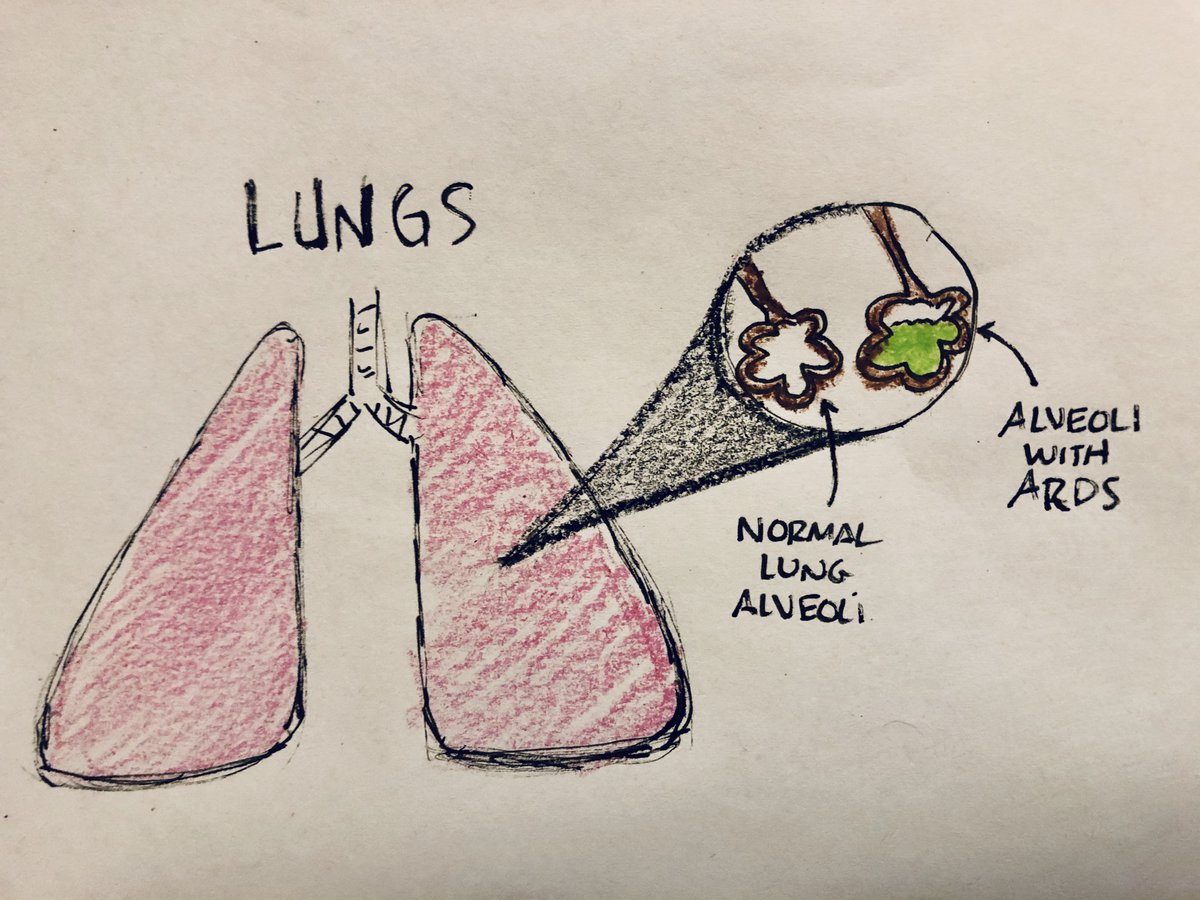Today we tackle 'pathophysiology', or the abnormal changes that occur in the body due to #COVID19.
If you're looking for information on #COVID19 testing or transmission, check 👇or my Twitter page.
Otherwise, let's go!
bit.ly/35uROzj
Here the virus uses 'spike proteins' to inject its genetic material into a host cell.
And then it takes over! AMAZING explainer👇
nyti.ms/3c03vAi
When in the lungs, it can wreak havoc by causing massive inflammation.
This creates some of the biggest problems we see in #COVID19 patients - difficulty breathing & ARDS (more on this later).
These infected cells then alert our immune system by presenting parts of the virus to white blood cells, our natural defense force!
The immune system can get really eager when dealing with infections, and can go 'overboard' - that is why sometimes we feel sore, body aches, and just overall sick.
Moderate levels of cytokines target the infection while not hurting our own cells.
However, too many cytokines (a cytokine storm) can cause a lot of collateral damage to our organs.
This is what causes the low oxygen and breathing problems with COVID19. It also causes ARDS...
It occurs when fluid and inflammatory products fill up the lung sacs. They no longer function well enough, and often these patients need to be put on a ventilator.

What we DO know is that people who are older and have heart, kidney, and lung disease, diabetes, hypertension, cancer, and obesity are at higher risk of severe illness and death.
This is because their immune systems don't function as expected, and can have unexpected responses to the virus.
It's likely that genetics can affect individual responses to COVID-19, but we're not sure right now.
Fortunately a COVID-19 Host Genetics Initiative is currently performing genetic studies & released a preliminary report as proof of principle. (covid19hg)
We're not sure why, but there's 3 possibilities:
1) The virus receptor levels (ACE2) are lower in kids
2) Kids' immune systems are not as strong
3) The virus competes against other viruses in kids' lungs
And we don't know why.
The amount of protein used by the virus to infect the lungs is higher in males than in females.
So maybe males may have a harder time getting rid of the virus from the body (?)
We are seeing that COVID patients develop blood clots. What are these clots exactly? All healthy people constantly form and dissolve tiny clots throughout the body. When clots persist and travel to various organs, these organs don't get enough blood to stay healthy.
Being stuck in an ICU can also increase clotting risk, as stagnant blood is more likely to form clots.
And it seems that standard anti-clot therapy doesn't really help as much.
Typically, strokes occur in ages >60.
But in COVID patients, these are also occurring in people ages 30-50s.
We're still trying to understand exactly why clots form.
The coronavirus IS mutating. All viruses do. Mutations occur naturally during replication, and some mutations may help the virus sneak past our immune system.
However, we're still unsure whether mutations are affecting treatment options or illness severity
nytimes.com/interactive/20…
For our next episode, we’ll tackle treatments!
This thread (and future ones) + all supporting articles & research can be found at: bit.ly/3bRycHQ
As always, a huge thanks to @TylerWen & @saurabhsudesh for helping put this together! Give 'em a follow!
@mguru2020 @giantbunnylove @nsalas_t @rattyhattreout
@berry89508197 @kurtdonovan6 @romanscollins @selznicksakki @nimbusnugget @loridow71 @ceartas4
Powered by 🖍️ & 🥃.
Be safe!




